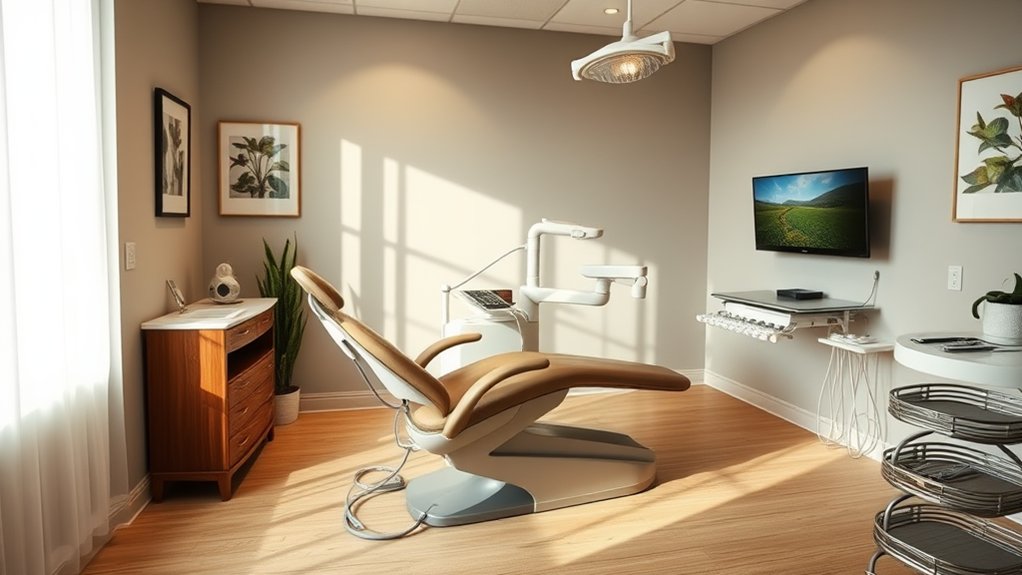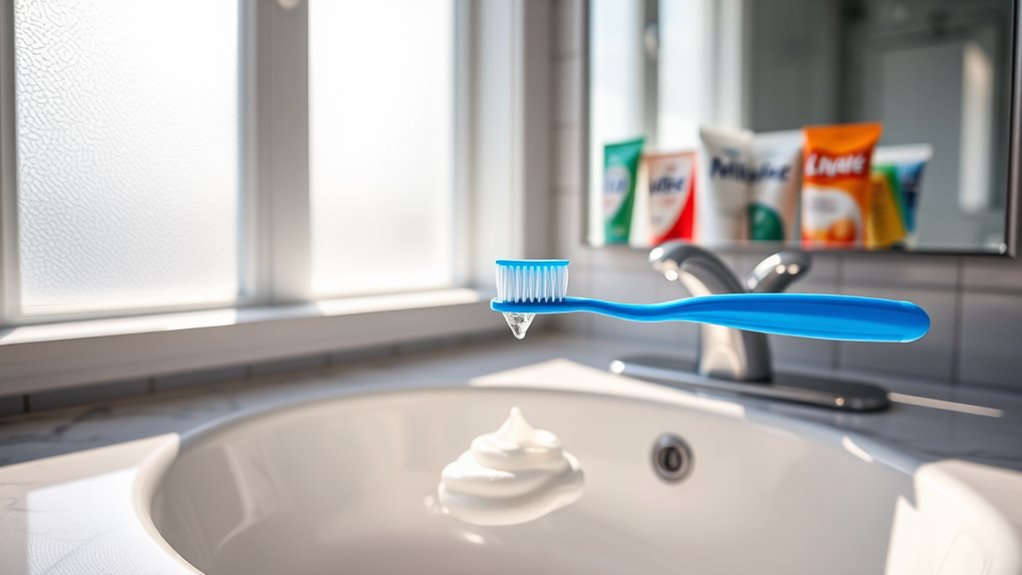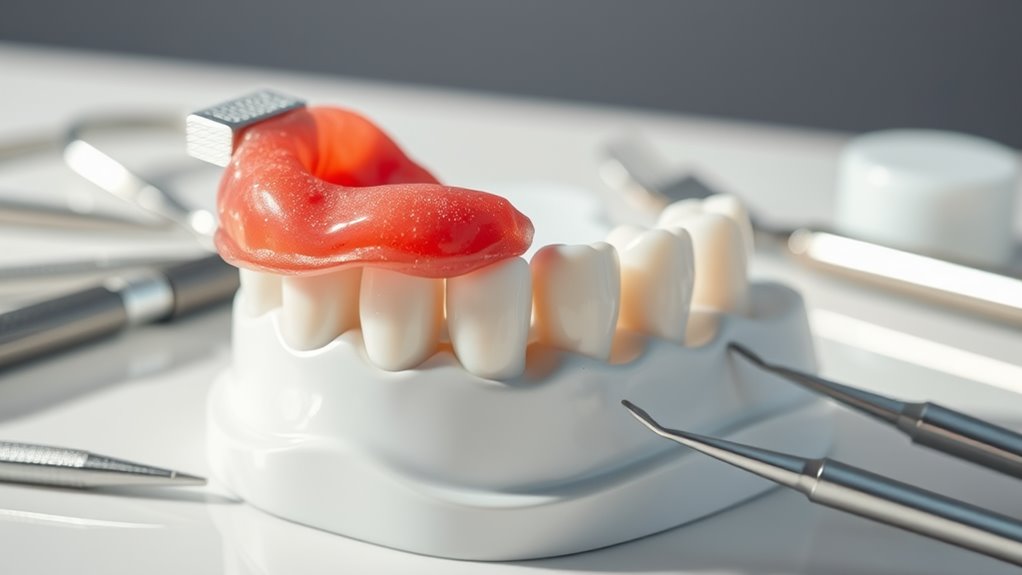Sedation Dentistry- Is It Right for You.
If you’ve ever felt anxious about dental visits or experienced discomfort during procedures, sedation dentistry might be a solution for you. It offers a way to ease your mind while allowing your dentist to perform necessary treatments effectively. However, it’s important to evaluate if it’s the right fit for your needs and comfort level. Let’s explore how sedation dentistry works and the benefits it can bring to your overall dental experience.
Understanding Sedation Dentistry
Understanding sedation dentistry is essential for anyone seeking a more comfortable dental experience. Sedation dentistry involves techniques that help ease anxiety and discomfort during procedures, making your visit to the dentist more pleasant.
Common types include nitrous oxide, oral sedatives, and intravenous sedation. This form of dentistry is beneficial for patients with dental phobias, high sensitivity, or complex procedures.
Before choosing sedation, you’ll discuss your medical history and preferences with your dentist. Proper sedation dentistry info ensures that you fully understand your options, the process, and any potential side effects.
Ultimately, it’s about creating a stress-free environment for your dental care.
Benefits of Sedation Dentistry
While many people dread dental visits, sedation dentistry offers significant benefits that can transform your experience.
It helps alleviate anxiety and fear, allowing you to relax during procedures. You’ll also find that discomfort is minimized, making it easier to complete necessary treatments without stress.
Additionally, sedation can help you undergo multiple procedures in one visit, saving time and reducing the need for multiple appointments. This approach can benefit patients with special needs or those who struggle to sit still for extended periods.
Types of Sedation Used in Dentistry
When considering sedation dentistry, it’s important to know the various types available, each catering to different levels of anxiety and treatment requirements.
The most common options include nitrous oxide, or laughing gas, which provides light sedation and wears off quickly.
Oral sedation involves taking a pill before your appointment, offering a deeper level of relaxation. IV sedation allows for fast-acting effects, ideal for extensive procedures. General anesthesia is used for more complex surgeries, providing complete unconsciousness.
Each type has its benefits and considerations, so discussing your preferences and concerns with your dentist will help determine the best option for you.
Assessing Your Need for Sedation
How can you determine if sedation dentistry is right for you? Start by assessing your anxiety levels. If you feel overly nervous or fearful about dental procedures, sedation might be beneficial.
Consider your medical history, too; certain conditions may warrant sedation for safety or comfort. Additionally, think about the complexity of the procedure planned. More invasive treatments often make sedation a preferable option.
Discuss your concerns with your dentist, who can evaluate your unique situation, recommend the appropriate type of sedation, and ensure your comfort throughout the dental process. Making this choice together can lead to a more positive dental experience. Incorporating pain-free dentistry techniques may also enhance your overall comfort during procedures.
What to Expect During a Sedation Dental Procedure
Before your sedation dental procedure, you’ll participate in a pre-procedure consultation to discuss your medical history and sedation options.
Understanding the different types of sedation and their effects will help you feel more at ease.
Being informed prepares you for what to expect during your treatment.
Pre-Procedure Consultation Process
During your pre-procedure consultation for sedation dentistry, you’ll engage in a detailed discussion with your dentist about your medical history, dental concerns, and the specific sedation options available.
You’ll also receive important information to prepare for your procedure, including:
-
Medical Evaluation: Assessing any underlying health issues that may affect sedation.
-
Sedation Options Review: Understanding the different types of sedation and their suitability for your needs.
-
Pre-Procedure Instructions: Learning about dietary restrictions or medication adjustments to ensure safety.
This thorough consultation sets the stage for a comfortable, effective dental experience tailored specifically for you.
Effects of Sedation Types
What can you expect when you undergo a sedation dental procedure? The type of sedation—nitrous oxide, oral sedatives, or IV sedation—affects your experience.
With nitrous oxide, you’ll feel relaxed yet fully aware. Oral sedatives may lead to drowsiness, but you’ll remain responsive. IV sedation provides a deeper level of calm, often causing you to forget the procedure altogether.
Your vital signs will be monitored throughout to ensure safety. While effects vary, you can generally expect reduced anxiety and a more comfortable experience.
Post-procedure, you might feel groggy, so it’s essential to have someone accompany you home.
Making the Right Choice for Your Dental Care
Choosing the right dental care option is essential for your comfort and overall experience. Sedation dentistry offers various benefits, especially for those who experience anxiety or have specific medical conditions. Identifying whether you’re a suitable candidate can help ensure you receive the best possible care tailored to your needs. Understanding needle phobia can help those who are nervous about dental procedures feel more at ease.
Benefits of Sedation Dentistry
Many patients find that sedation dentistry offers significant benefits, making it an excellent choice for those anxious about dental procedures.
Here are three key advantages:
-
Reduced Anxiety: Sedation helps calm your nerves, allowing you to feel relaxed during treatments.
-
Pain Management: You’ll experience minimal discomfort as sedation effectively alleviates pain, making procedures more bearable.
-
Time Efficiency: With sedation, your dentist can often complete multiple treatments in one visit, saving you time and trips to the office.
Identifying Suitable Candidates
When considering sedation dentistry, it’s essential to assess whether you’re a suitable candidate for this approach to dental care.
If you have anxiety or fear surrounding dental procedures, or if you’re undergoing a lengthy or complex treatment, sedation might be right for you.
Additionally, individuals with certain medical conditions, such as heart issues or respiratory problems, should consult their dentist to evaluate potential risks.
Don’t forget to discuss your medical history and any medications you’re taking.




